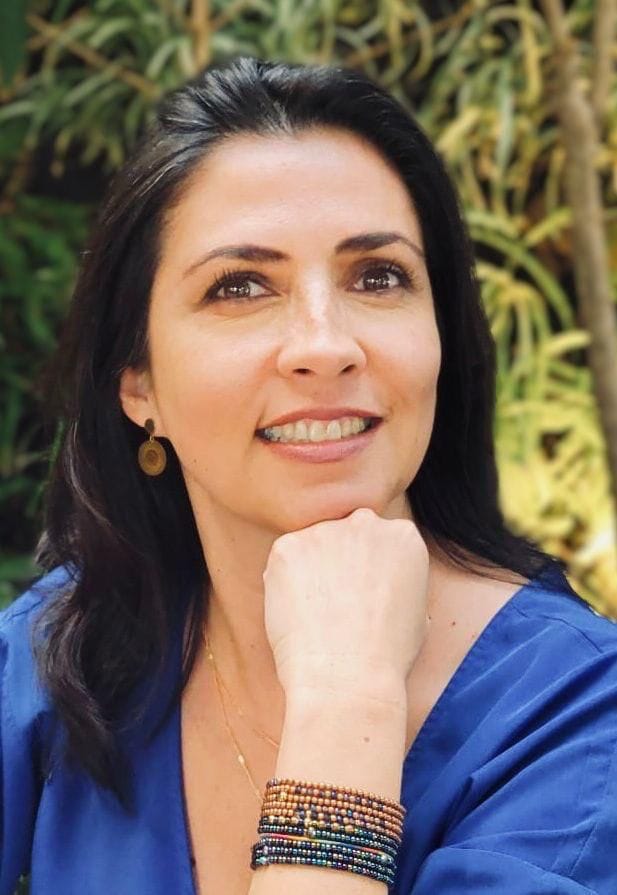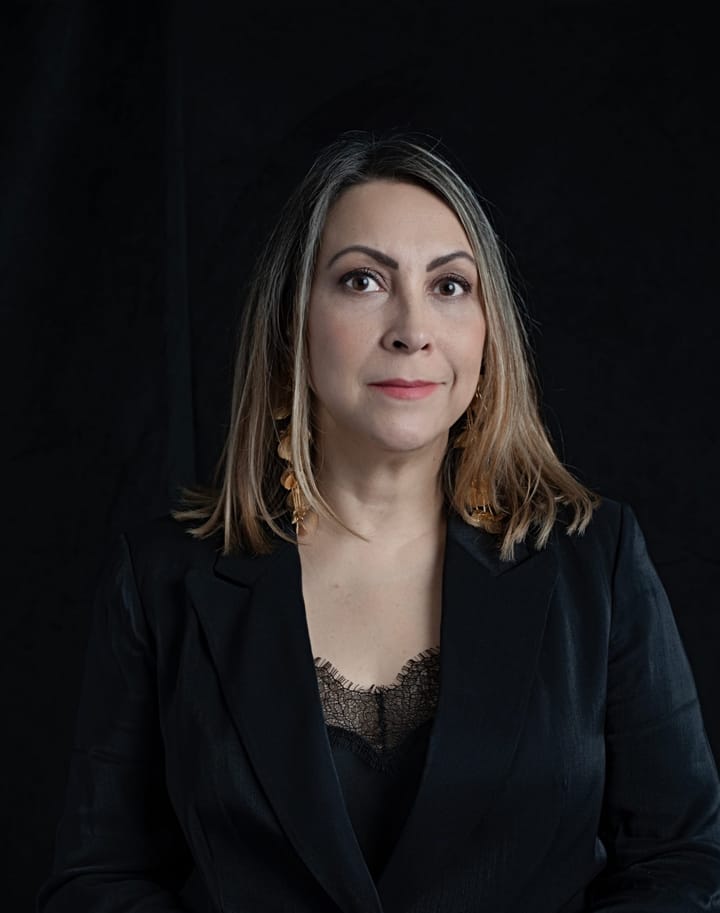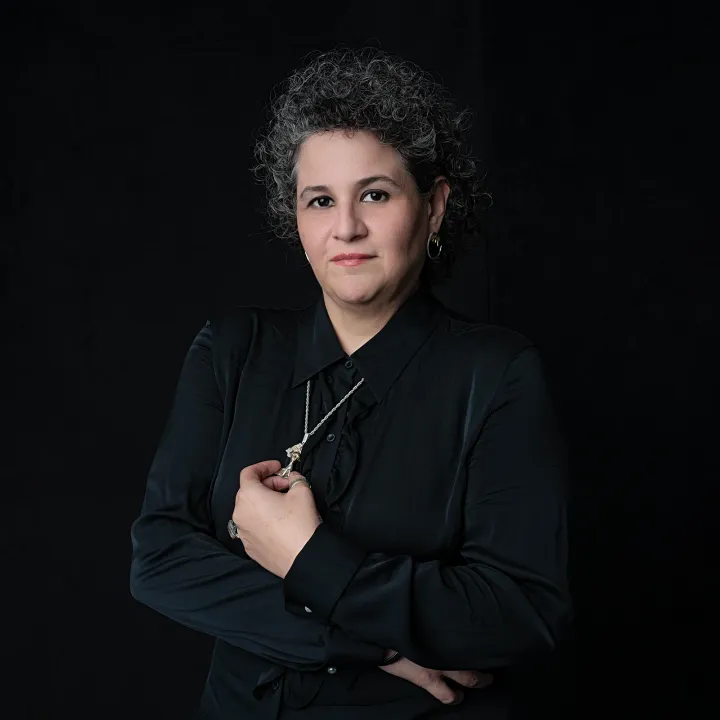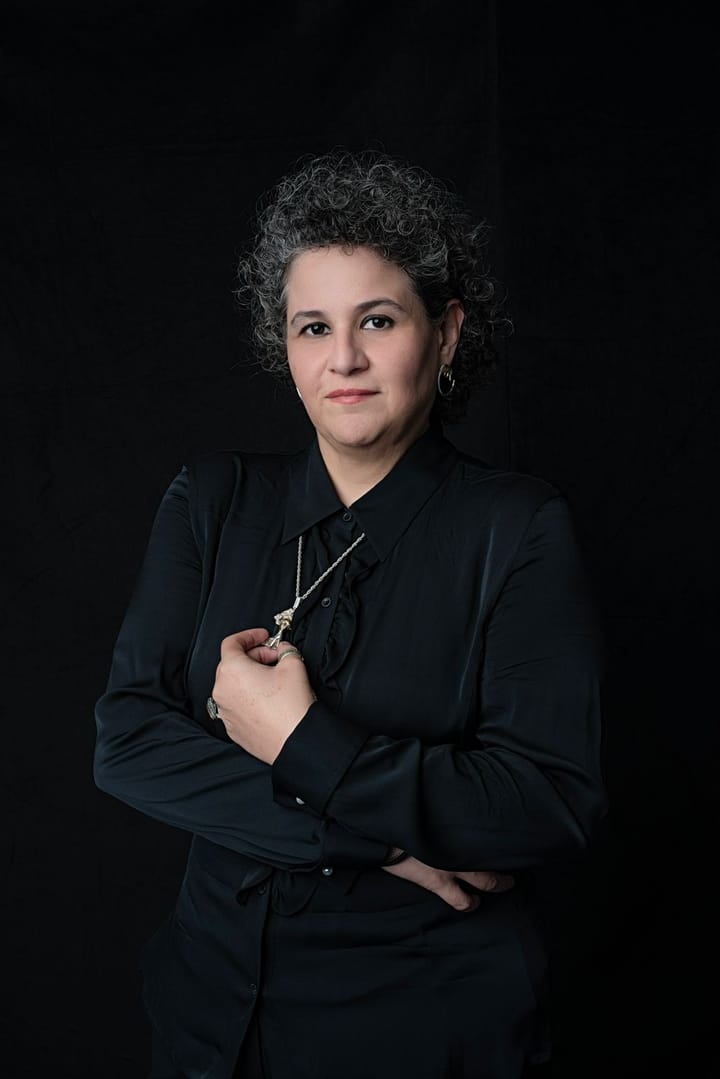Por Elena Videgaray

Bochornos, climaterio, neblina mental, ánimo depresivo, taquicardia, irritabilidad, agotamiento, insomnio… menopausia. Palabras que llegaron y que -irremediablemente- se volvieron relevantes en mi vida. Ahora todas bailan a su propio ritmo y desconfigurado compás en mi cabeza y organismo y yo entonces siento que algo en mí está mal, ¿seré yo?,¿Está todo mal?, ¿Me entienden?, ¿Me entiendo?, ¿Qué me duele?, ¿Qué no?. Pienso entonces que tal vez no me gusta tanto esto de vivir a tope como pensaba, es más: ¿qué tanto me gusta vivir? La nueva revolución hormonal se plantó en mí sin piedad y sin preguntar. No me deja verla; se esconde en mi humor cambiante, en mis angustias y dudas, trasciende a la visión de mi entorno, altera mi mirada y está ahí, detrás del espejo en mis olvidos, en mis pensamientos rumiantes y más oscuros. Luego atraviesa la barrera de mí y se cuela en mis conversaciones y en mis algoritmos. ¡Qué pesadilla!
Esta disertación (propia, por cierto) es la realidad a la que se enfrentan mujeres en esta fase natural de la vida en la que, la misma vida, nos recuerda que es un continuo juego de pérdidas y ganancias.
Cuando vivimos una pérdida en general, viene un proceso que implica un cambio, un ajuste o una nueva visión. A este proceso adaptativo por breve o amplio que sea, se le llama duelo y es precisamente la respuesta emocional de una persona ante la experiencia de una pérdida.
El climaterio es una fase en la mujer cargado de muchas pérdidas lo que lleva a un proceso de sufrimiento psíquico comparado con el duelo. (Misri,2002)
Así que esta etapa de la vida resulta ser un interesante combo de pérdidas: la fase reproductiva, la juventud, la condición familiar (divorcio, nido vacío), la muerte de nuestros seres queridos (padre, madre, amigos, familiares), la salud como la conocíamos: dada por hecho y constante, y por supuesto la visión a futuro o dicho de otra forma, nuestro sentido de vida.
Ahora hay que hacer una serie de ajustes y transformaciones en nuestro estilo de vida y en nuestro mundo interior para adaptarnos y encontrar así estabilidad emocional.
El paso por la menopausia implica un trabajo profundo para aceptarla e incorporarla a la nueva realidad y circunstancias de vida de cada mujer. Significa también considerar un periodo de turbulencia emocional que coincidentemente se parece a los cambios que se desatan en la pubertad y adolescencia y que por supuesto, trae consigo varios duelos.
Nos toca entonces afrontar nuestras pérdidas, dar espacio a su proceso natural de duelo, visibilizar las emociones que conlleva, aceptarlas, ordenarlas y darles voz. Dar también espacio a la vulnerabilidad consciente, atendida y escuchada. Saberse capaz, dolerse por lo perdido, apelar a la autocompasión, ser tolerante con una misma y quererse por sobre todas las cosas.
Nos corresponde honrar nuestra soledad y valorar más que nunca la compañía, aprender a disfrutar desde este nuevo tiempo que nos regala una mirada más amplia para los demás, para nosotras mismas y recordar de vez en cuando que no existe nada más favorable -en el duelo y en la vida- que saber acompañar y acompañarse.
*Elena Videgaray es Tanatóloga clínica y pediátrica certificada por la AMTAC (Asociación Mexicana de Tanatología A.C.) Voluntaria de Fundación Acompaña. Especialista en intervención en crisis con estudios en logoterapia y título de Experto en Acompañamiento por la Universidad Francisco Vitoria, España. Conferencista en el foro MODERS, da pláticas y talleres de duelo a empresas y fundaciones. Participa en secciones de algunos programas como “Sale el Sol” y con Nacho Lozano en Imagen Televisión con intervenciones de procesos de duelo.
Las opiniones expresadas son responsabilidad de sus autoras y son absolutamente independientes a la postura y línea editorial de Opinión 51.






Comments ()